
It allows to keep PV going, with more focus towards AI, but keeping be one of the few truly independent places.
-
Both system cameras and compact shipments in last two and half years.
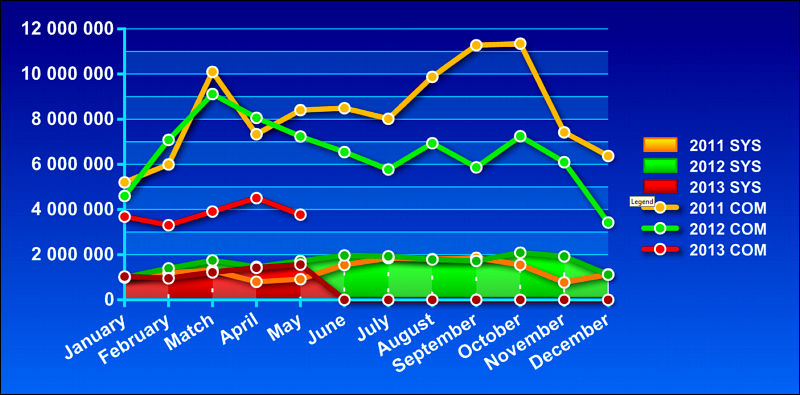
Only system cameras:
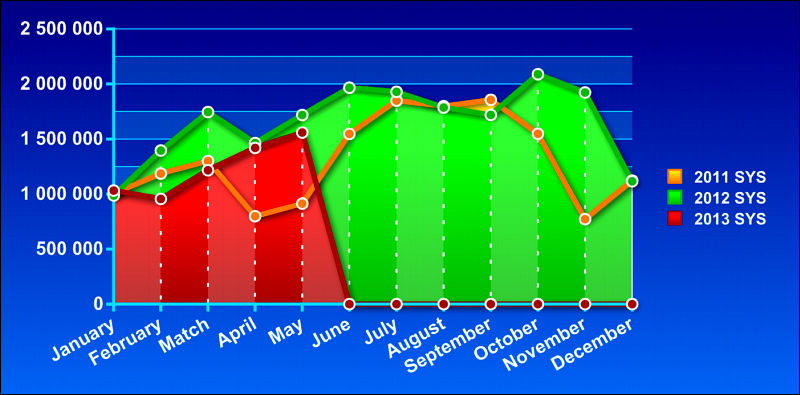
Only compacts:
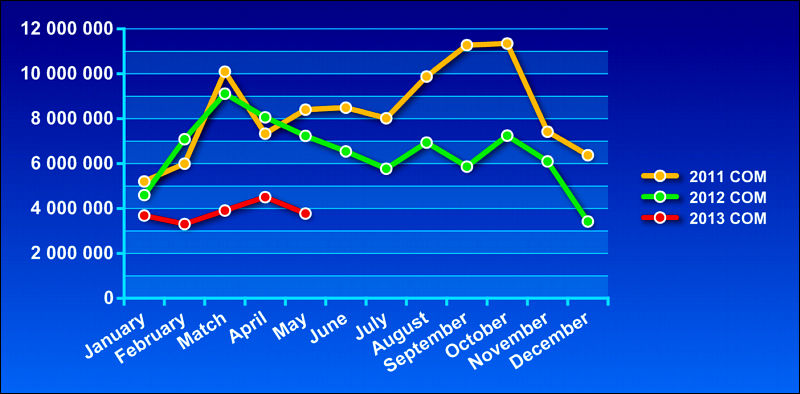

 cipa_may2.jpg800 x 395 - 95K
cipa_may2.jpg800 x 395 - 95K
 cipa_may3.jpg800 x 395 - 78K
cipa_may3.jpg800 x 395 - 78K
 cipa_may5.jpg800 x 394 - 83K
cipa_may5.jpg800 x 394 - 83K -
More charts
Worlwide shipments of DSLR and MR like cameras
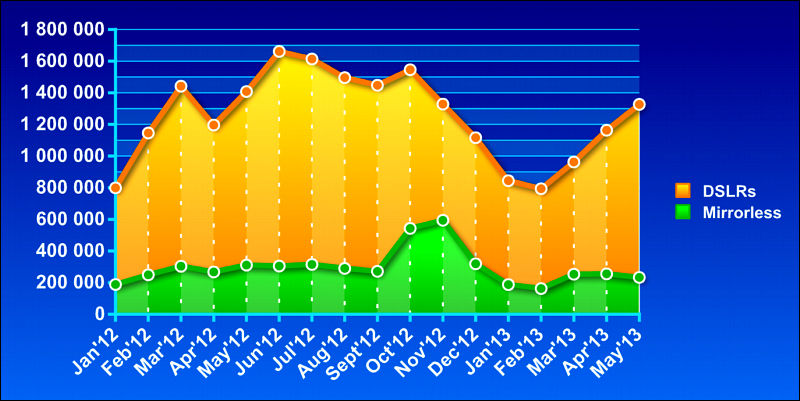
Percentage of MR:
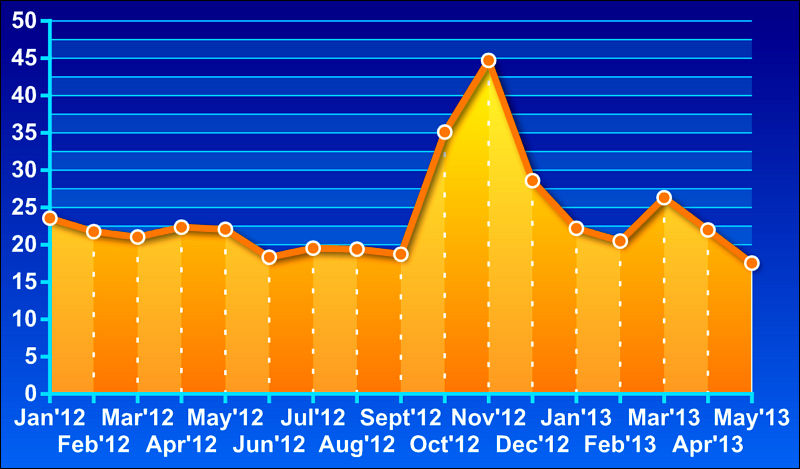

 cipa_may6.jpg800 x 401 - 89K
cipa_may6.jpg800 x 401 - 89K
 cipa_may7.jpg800 x 469 - 104K
cipa_may7.jpg800 x 469 - 104K -
Even more charts.
Shipping by type in Americas and Europe:
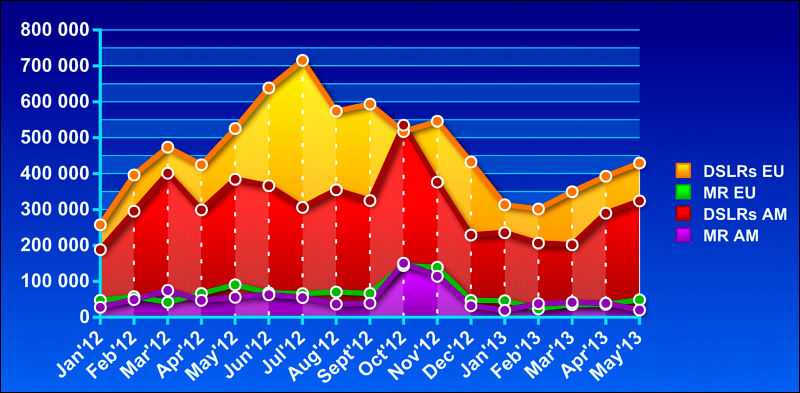
Only mirrorless type cameras:
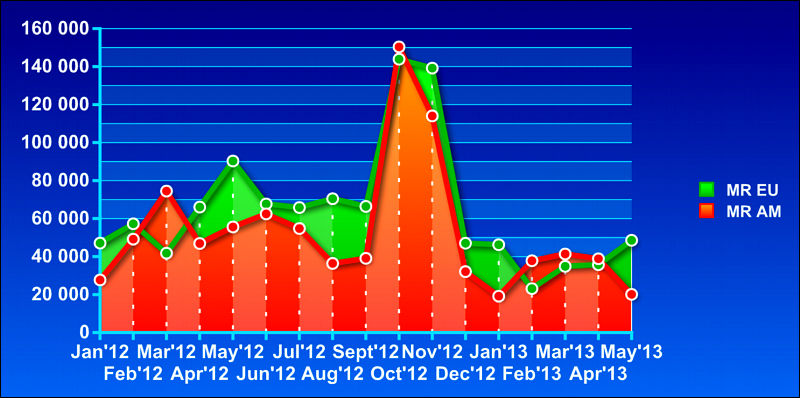

 cipa_may8.jpg800 x 393 - 98K
cipa_may8.jpg800 x 393 - 98K
 cipa_may9.jpg800 x 398 - 92K
cipa_may9.jpg800 x 398 - 92K -
Please, can you share what's your background conclusion?...
What you mean?
it is charts topic, if you want my opinion browse back in time :-)
-
what this charts could mean in terms of future
The cameras sales will continue to grow and fall for a long, long time. Forecast for this year…increasing uncertainty in August with small patches of certainty toward end of the year…
-
Wow :) Ok. I was referring to the fact in the first chart: 2013 starting levels are significantly lower for system cameras, while compact remain near the same. So, may be crisis (right here in Catalunya, Spain) or may be something related to have the whole people in the world (countries with enough money) yet fullfilled with DSLRs. In this last case, I was thinking in people who is ok with their EOS 600D, Nikon D5200 (or let's say any average consumer 2011 or 2012 DSLR camera) without the need of change their cameras each year.
So if we reach a point where "everybody" has a capable DSLR, near the times in film cameras (when dad/mom had a DSLR for 15 or more years), could we spect a soft "stop" for this growing period of digital photography (from 1999 or 2000)?... let's assume that most people are not dreaming the whole day in full frame DSLR, and they could be perfectly ok with a good 12 to 16 MP APS-C DSLR or EVIL. And we can't forget about smartphones and GoPro's. That's more or less what I was trying to mean.
Sorry for my english. Tks ;)
-
Ok. I was referring to the fact in the first chart: 2013 starting levels are significantly lower for system cameras, while compact remain near the same.
It is quite reverse, if you check legend.
So if we reach a point where "everybody" has a capable DSLR, near the times in film cameras (when dad/mom had a DSLR for 15 or more years), could we spect a soft "stop" for this growing period of digital photography
Fundamental economics play most important thing, as technology can grow quite fast still. Just check screens on most cameras, they are so outdated. EVFs and screens must jump to FullHD realm soon.
-
"It is quite reverse, if you check legend."
Yes, I was wrong. Sorry. So it's a fall in compact shipment. I understand that this is fully related to smartphones and tablets.
"Fundamental economics play most important thing, as technology can grow quite fast still."Technology can grow quite fast still, I agree. But I'm thinking in terms of quality from the results you're expecting when you press the shutter button. I understand there're always marketing facts to make people purchase "last generation" model but, may be I'm growing old (yes, I do), I feel that lots of people in my generation (30 to 40 years) can be ok now for longer periods with a good DSLR from 15 to 20 MP recently buyed, and be far from worried about HD screens or EVF's, or best AF systems, nor "super-best" low light perfomance. And I understand that's the kind of feeling I remember when I was shooting a 135mm film Nikon F601 in the 90's. In that times there were best models like F3 or F90, but common users where truly happy with average models and puntual investments in good lenses.
When I was reviewing first consumer digital DSLRs in 2003 (like EOS 300D) I was sure I'll need to wait some years to feel ok again (as with that film F601) with digital DSLRs. Ten years after, in 2013, I'm expecting (as usual) better things, but I feel we have reached again the "standards" for consumers. Not necessarily related to Full-Frame as I thought in the past. And of course, you can invest in D800 or 5D Mark III to feel "realised".
There's also the computer factor (RAW processing) to be happy without the investment in "the best" to be ready to "compete with the best" in quality terms. Artistic skills and esthetics criteria apart, of course.
As a conclusion: I'm comparing this situation with sound market. Market have/had achieved SACD and DVD-Audio as best comercial digital high quality, digital full-range amps, and 7.1 multichannel audio, etc. But most of people is happy listening to "crappy mp3" (mostly generated from 16bit 44khz CD quality) through standard analog amps.
-
System camera sales are pretty stable, but unfortunately there's no upward mobility in sales. Compact cameras are going down.
One could say, though, that there's huge opportunity. There hasn't really been something defining. The industry has to rapidly and radically switch categories, like what happened in phone industry and PC industry with tablets.
Compact cameras like the ones that exist have been taken over by the phone; the industry shouldn't deny this. There's opportunity for compact camera's with way better image quality and usability than exists in super small form factors, but the industry has been stuck in the same old, much like phones were stuck for a while -- I think the camera industry needs a new perspective from silicon valley. Also, the problem with the current compact cameras that do offer high quality are made and priced as enthusiast cameras. This is denying the shift in the camera world and denying opportunities.
Next is the problem with mirrorless cameras, which offer a huge range of models, effectively making it a huge mess for the consumer. A layman can hardly tell what one has to offer compared to the other. Also system camera's are priced at or above DSLR prices. And every few months a new model appears, and last years dumped at bottom prices, creating confusion among consumer -- value is gone, one buys one priced at $500, then a few months later it's only $200, and in the eyes of the consumer it almost seems like they've been had, or they get the feeling that every $500 system camera is simply shit.
And there's the thing that most people that buy exchangeable lens systems don't buy that many lenses anyway. Most people I know have the standard zoom and a high zoom, whether they have system cameras or DSLR. So in the system camera category, the industry also needs to radically rethink.
Personally, I think the huge opportunity is not in system cameras, but in the compact camera segment. Create something radically new in handling and interface with super high image quality in video and photo in super compact bodies. One currently buys a system camera for this, but what one really wants is a compact. And the current enthusiast compact cameras like the RX100 is not what I'm talking about.
-
@John_Farragut You got the RX1 (full format) which is one step ahead... but then again not a truly compact.
Plain compacts have struggled for a long time and will be. There are many reasons to that. Not just economics.
I love the mirrorless concept, but these charts indicated that the mirrorless system is the big looser these days IMHO. Professionals don’t want it. Consumers don’t buy it (confusion is mentioned. I believe that as well). Let’s hope it’s not the beginning of the end for micro four third’s system cameras. Something needs to change to turn the tide. Hope they’re not too late.
-
I added much more charts in Part 2
http://www.personal-view.com/talks/discussion/7436/camera-sales-history-part-2
-
Next is the problem with mirrorless cameras, which offer a huge range of models, effectively making it a huge mess for the consumer. A layman can hardly tell what one has to offer compared to the other. Also system camera's are priced at or above DSLR prices. And every few months a new model appears, and last years dumped at bottom prices, creating confusion among consumer -- value is gone, one buys one priced at $500, then a few months later it's only $200, and in the eyes of the consumer it almost seems like they've been had, or they get the feeling that every $500 system camera is simply shit.
Worst thing is start making yourself self proclaimed expert and declare some imaginitive problems in same time proposing "smart" and "easy" solutions.
We have such guys in waste amounts around camera sites. Just no one listent to them seriously :-)
Howdy, Stranger!
It looks like you're new here. If you want to get involved, click one of these buttons!
Categories
- Topics List23,992
- Blog5,725
- General and News1,354
- Hacks and Patches1,153
- ↳ Top Settings33
- ↳ Beginners256
- ↳ Archives402
- ↳ Hacks News and Development56
- Cameras2,367
- ↳ Panasonic995
- ↳ Canon118
- ↳ Sony156
- ↳ Nikon96
- ↳ Pentax and Samsung70
- ↳ Olympus and Fujifilm101
- ↳ Compacts and Camcorders300
- ↳ Smartphones for video97
- ↳ Pro Video Cameras191
- ↳ BlackMagic and other raw cameras116
- Skill1,960
- ↳ Business and distribution66
- ↳ Preparation, scripts and legal38
- ↳ Art149
- ↳ Import, Convert, Exporting291
- ↳ Editors191
- ↳ Effects and stunts115
- ↳ Color grading197
- ↳ Sound and Music280
- ↳ Lighting96
- ↳ Software and storage tips266
- Gear5,420
- ↳ Filters, Adapters, Matte boxes344
- ↳ Lenses1,582
- ↳ Follow focus and gears93
- ↳ Sound499
- ↳ Lighting gear314
- ↳ Camera movement230
- ↳ Gimbals and copters302
- ↳ Rigs and related stuff273
- ↳ Power solutions83
- ↳ Monitors and viewfinders340
- ↳ Tripods and fluid heads139
- ↳ Storage286
- ↳ Computers and studio gear560
- ↳ VR and 3D248
- Showcase1,859
- Marketplace2,834
- Offtopic1,320





